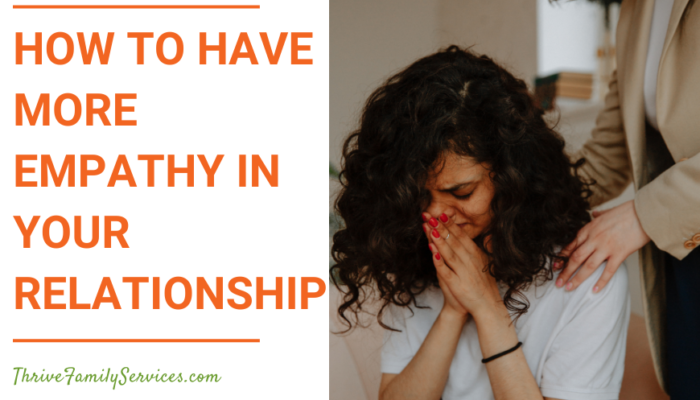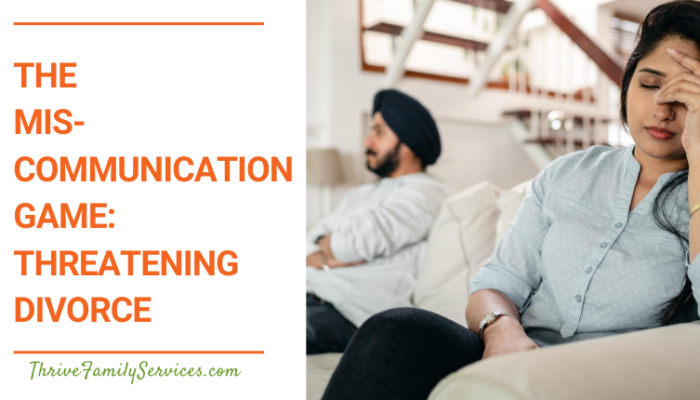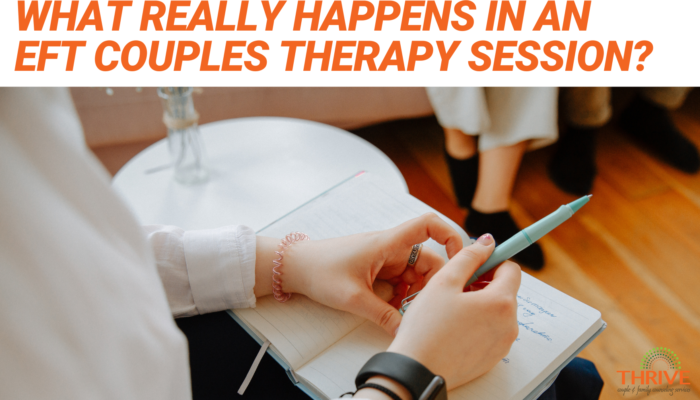Lola and Tracy have conflicts every so often that are passive or become explosive. They aren’t afraid of having conflict, but they feel worse after they fight. There was one argument where Lola came home late, Tracy was furious, and they didn’t talk to each other for a few days until they both just agreed to drop it. There was another argument that they had about their political views that got them both frustrated to the point where they both just agreed to disagree.
Tony and Danny get in a conflict almost every day. Sometimes, they start a conflict because of something small (like which restaurant they are going to try for dinner) and sometimes they have a conflict over something bigger (like when Danny didn’t like something that Tony said about his family members). After every fight, they either come to some sort of resolution or they try to repair any part of the conflict that was hurtful to either partner. They feel much better after doing this.
Kate and Marshall don’t ever fight. They both hate conflict, so they choose to keep their grievances to themselves. When Kate was angry at Marshall for making plans without her, she just kept it to herself and didn’t say a word. When Marshall was sad because Kate didn’t get him a Father’s Day card, he kept his sadness to himself and put on a smile.
Which of these couples do you think has the best relationship when it comes to conflicts?
The one that has the occasional fight that gets dropped? The one that has daily fights that get repaired? Or the couple that would rather keep quiet than have a fight?
It may be surprising to know that as a couples therapist, I don’t want couples to stop fighting. Instead, I want couples to feel more confident in their ability to have their conflict lead to bonding and connecting.
Conflicts that are bonding and connecting? Is that even possible? Most people would prefer to never experience conflict with the people they love the most. It isn’t fun to fight!
To explore this further, let’s understand the definition and purpose of conflict:
Why do you fight with your partner in the first place? In summary, conflict in relationships happen when one person’s actions or words impacted the other person’s emotions in a negative way.
Since that’s the case, the purpose of conflict should be to get those hurt feelings repaired. And that is exactly why conflict is healthy for relationships. If hurt feelings aren’t repaired, they tend to grow or become resentful. They can lead to someone putting a guard up around their heart to avoid feeling hurt again, but that guard gets in the way of emotional intimacy between partners.
Interestingly enough, for this very reason, research shows that it isn’t conflict that ends relationships – it’s actually avoiding conflict that might.
Often times, I like to think of conflict as a relationship’s “growing pains.” Because people grow, evolve, and change, their relationships have to grow, evolve, and change. Since relationships involve two people, it makes sense that those two people might be evolving in two different directions. Conflict is needed at that point in order to help both people understand each other better. It’s painful while the conflict is happening, but it allows the relationship to grow.
I often hear people in a relationship share two common reasons why they don’t want to fight: “I chose my battles,” and “I don’t want to sweat the small stuff.”
Unfortunately, these reasons don’t allow growing pains to happen. Having conflict over “the small stuff” is better for the longevity of a relationship because small issues that go unaddressed usually evolve into bigger problems that become harder for couples to resolve.
It’s much easier to resolve “I got scared when you didn’t tell me that you were staying late at work tonight,” than it is to resolve “I don’t trust you because you have never told me where you go late at night.”
The important thing to remember is that couples should not aim to eliminate conflicts from their relationship.
Instead, couples should focus on increasing their confidence to have and repair conflict. That way, the temptation to avoid it goes away because it feels so good to “grow” with your partner.
If you and your partner tried to resolve a conflict, but it turned into a fight, it’s important that the two of you are able to talk about it and repair it afterwards. It can be extremely tempting to just drop an argument after it happens to avoid stirring the fight up again, but this lets the argument win! Couples should feel empowered to take on any conflict that tries to come between them and not let the disagreement cause a relationship rift.
Research shows that two-thirds of problems between couples never go away. However, successful couples learn to talk about the problem in a way that values both partners’ perspectives with flexibility and consideration.
Here are some guidelines to making sure that you and your partner are able to repair after a fight so that you aren’t tempted to eliminate conflict entirely:
1. Listen and Show Empathy
Defensiveness and blame are quick ways to derail a conversation back into a conflict. Rather than getting pulled back in to proving yourself right, try to take your partner’s perspective. Understand their motivations behind their actions and the logic behind their emotion.
2. Problem-Solve to Prevent a Fight
Having a conflict turn into a fight means that there is a winner and a loser. In a healthy conflict, either both partners win or they both lose. Even with two different perspectives on something, there is always a way that partners can collaborate and problem-solve as teammates, rather than fighting to have your own perspective “win” over your partner’s.
3. Be Specific and Share Emotion
The purpose of going back and repairing an argument-gone-wrong is as simple as it sounds. The purpose is to repair any damage to the relationship before it becomes too big.
It’s really helpful to make sure these repairs happen by being specific with each other about your emotions and your perceptions of the argument. “You were really mean and that’s why I started crying.” is not as clear as “When you told slammed the door and raised your voice, it felt like you were being mean. That’s why I started crying. I get really sad when it seems like you are mad at me.”
4. Look for Deeper Reasons
There is almost always a deeper reason for why something was hurtful. For example, “I am angry with you because you didn’t take out the trash.” is different than “It felt like you were disrespecting me when you didn’t take out the trash, and that’s why I got angry.”
Sharing deeper reasons for why you felt or responded the way you did can help your partner have more empathy for you.
5. Take Ownership and Apologize After a Fight
An important last step to repairing conflict is owning where you went wrong and apologizing to your partner for it. All relationship patterns (good and bad) are caused by two people (with the exception of abuse and addiction).
Even if it seems like you didn’t do anything wrong, chances are that you had some participation in derailing the conflict. It can be really powerful for your partner to hear you say, “Now I understand why you didn’t take the trash out. I shouldn’t have assumed that you weren’t thinking of me. I’m sorry for not giving you the benefit of the doubt.”
6. Know When To Seek Counseling
If you and your partner have a conflict pattern that is difficult to break, it might be time to see a couples counselor. EFT Therapists specialize in recognizing and changing patterns in communication and conflict! This can be a great resource for couples that don’t know how to get through the growing pains of conflict.
Think back to the three couples at the beginning of this post. Has your answer changed regarding who has the healthiest relationship when it comes to conflict?
Partners that give their relationship more opportunity to grow by having conflicts and learning how to repair conflicts are stronger than partners who don’t.
If you fight with your partner lot, our Denver Couples Counselors can help. Schedule an appointment today!




